Two weeks ago I interviewed someone in France about his work in coffee. He’s a person I’ve admired from afar and wanted to know more about his work, so I pitched his story.
I began this interview–as I do all my interviews–asking him how he got started in coffee. I find the answers to this question fascinating, and they help me understand the person I’m interviewing. Coffee isn’t easy work, and you certainly don’t get rich in the industry, so what motivates someone to choose this as a career?
I’ve found that people go into coffee for a variety of reasons–they worked as a barista in college and never left the industry; they were born into a coffee family and then chose the work for themselves; or they had some watershed moment and decided to make coffee their career.
Over the last couple of years, I’ve interviewed photographers, a classical guitarist, a tattoo artist, an ambassador, a mixologist, many people from the corporate world, and even a few PhDs. Regardless of their background, they’ve all found (or created) a space for themselves in coffee. I think this diversity is what makes the people in coffee so lovely and so accepting of others.
Cydni Patterson, a coffee professional in North Carolina, summed this up in an article I wrote about her in 2023:
“It’s not just the act of crafting that is awesome about coffee. You could be an ethicist and talk about labor practices across the supply chain. You could be a scientist and explore fermentation or climate change. You could be an economist and talk about the exchange of money for goods and services in the global economy. You can find a place in the industry. I think that’s the cool thing behind the coffee professionals. The industry is small enough and with a wide enough reach that you actually can change lives, and all of this can happen over a cup of coffee, and I think that is freakin’ magical.”
It is freakin’ magical.
I had no idea how I would be received when I decided to write about women in coffee. Keep in mind that I came to coffee after working as a professor, an occupation where you can have all the credentials and accolades and still not feel like you belong.
I had been learning about coffee for years before I felt comfortable enough to start writing about it. I started visiting farms in 2016 and didn’t write my first story for Daily Coffee News until 2021. It was an article about Buna, a coffee shop and roastery in Mexico City. (It’s actually where I’m writing this Substack now. It’s easily one of my favorite coffee shops in the city.) It was another year of reading before I started research for my book, the initial interview taking place over a plate of croissants and a pour over coffee in the backroom of a Parisian coffee shop.
My research led me to South and Central America and then to East Africa, and I was welcomed at every stop. Coffee professionals are passionate and in my experience, so willing to share their stories and explain the intricacies of their work.
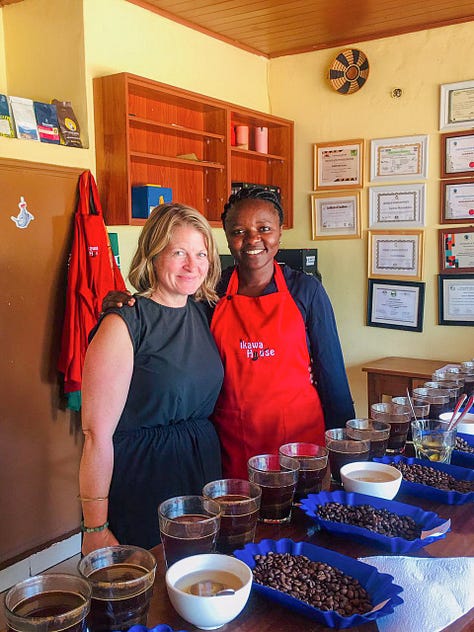
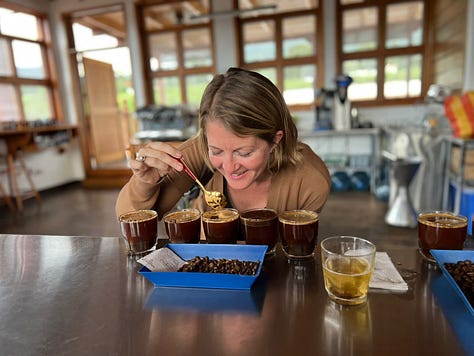
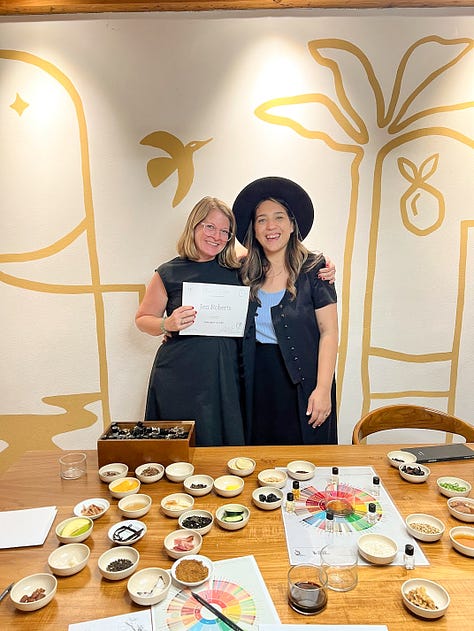
The learning curve, though, has been (and continues to be) steep. There’s so much to learn about coffee, from the environmental, social, political, and economic issues to processing, roasting, and brewing (and that doesn’t even begin to cover it all). Coffee is complex, but as someone who never tires of learning, I’ve found the work to be endlessly fascinating.
When I’m asked why coffee? Why this project? I struggle to articulate a quick reply because my story is convoluted. I wish my story had a life-changing coffee tasting experience, like so many of my favorites do, but mine is a long and winding tale that spans over two decades.
I’ve always loved coffee. In my undergrad and grad school days, I spent hours writing papers in my two favorite coffee shops. Mélange was more upscale. It had a small stage for jazz concerts and a terrace that was shaded by a plant canopy. My professors hung out there, and it’s where I’d meet my classmates for debates about the literature we were reading. Longbranch was the eclectic coffee shop with mismatched chairs and colorful plastic tablecloths. It drew a different crowd, a livelier one, but I loved it just the same.
I suppose it was the intellectualism that’s associated with cafe culture that initially attracted me to coffee. When I moved to St. Louis after finishing my master’s degree, finding my coffee shop was as important to me as finding the nearest grocery store and post office. I spent evenings reading and writing at Kaldi’s, which I’ll admit I picked more for the tree-lined streets that reminded me of Europe than I did for the coffee.
Coffee accompanied me through my PhD program, which, unknowingly, was a real catalyst for wanting to write about women in coffee. My dissertation focused on girls’ education in India, and I continued this work after I was hired into a tenure track position.
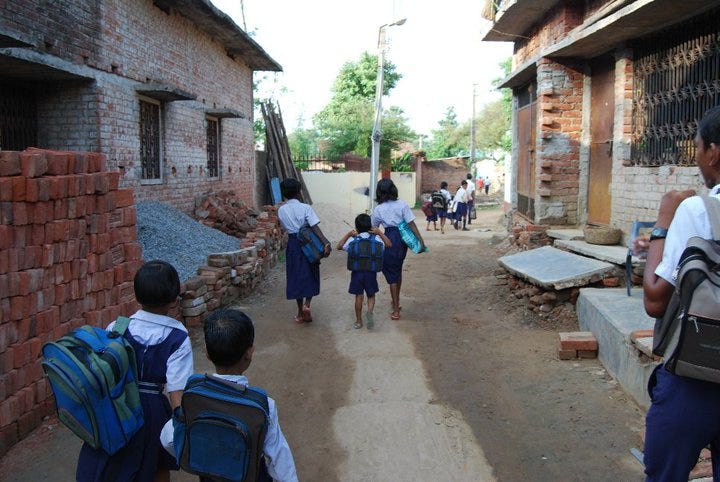
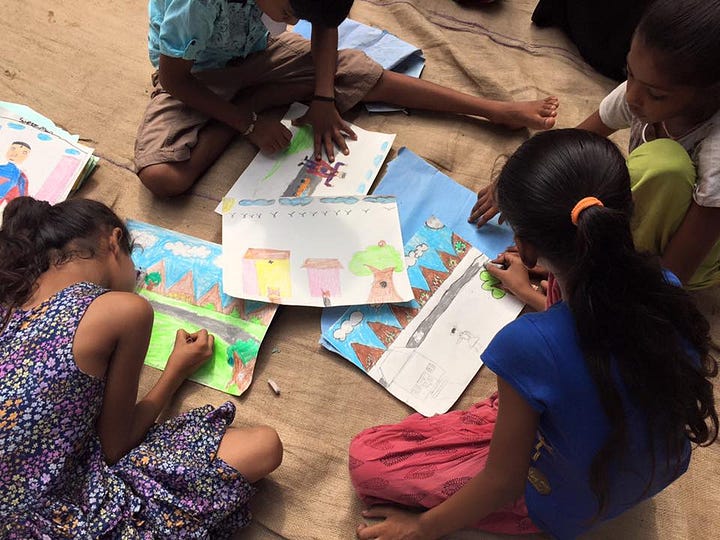
Every summer I’d travel for research. I loved being in the field doing qualitative studies, but I quickly became disillusioned with academic writing. It felt too structured. I wanted the stories from my research to be shared with a widespread audience, not locked behind ProQuest. I eventually left academia with the desire to write about stories that matter, but for a public audience. This gave me the freedom I needed to write more creatively and allowed my work to not be so siloed.
I deep dove into coffee during the pandemic. I replaced my standard coffee pot with a Chemex and V-60, started ordering beans from top roasters across the country, and read anything I could get my hands on. It didn’t take me long to hone in on issues pertaining to gender equality, and once I did, I knew it would be my first project after leaving academia.
I didn’t realize that I was going to get sucked into the world of coffee like so many of the people I've interviewed. I was naive thinking I would approach the work as an outsider–and remain that way.
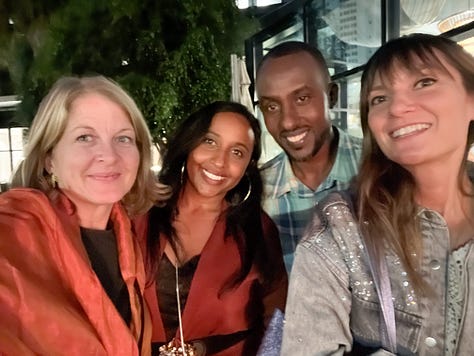
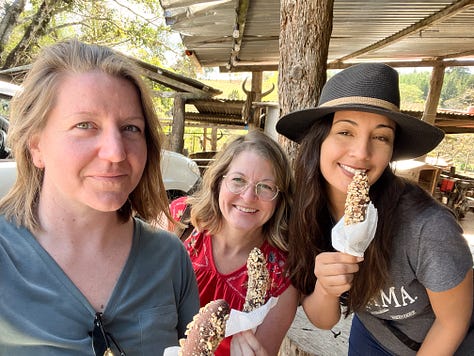
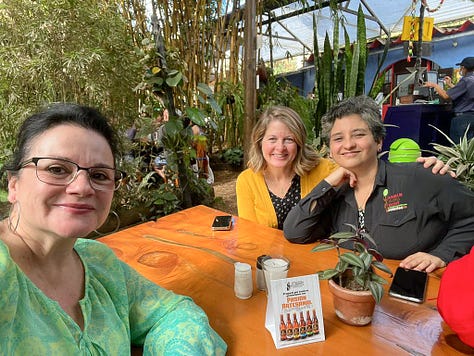
I can pinpoint when this changed. Colombia was the first country I visited for research. I visited in August, but the women convinced me to return for harvest in October. When I walked into the Cafes de Colombia Expo in Bogotá, I was greeted with such a warm reception that I felt like I belonged. It was such a surreal experience to feel like I belonged at a coffee conference in Colombia.
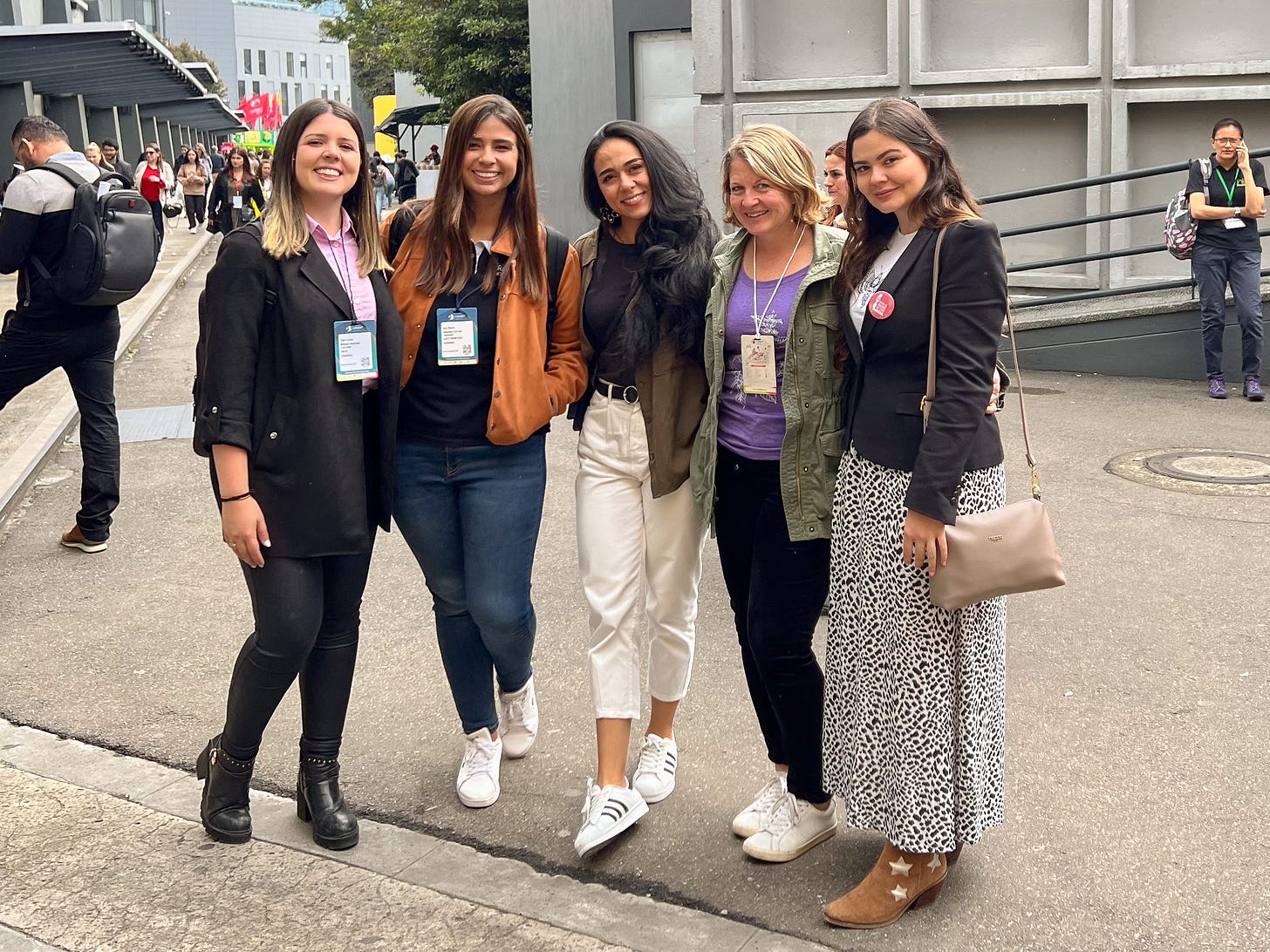
Little did I know at the time that it was just the beginning. I would be welcomed into homes and to birthday parties. I would be picked up at my hotel by a stranger (who is now a dear friend) in Guatemala, taken to dinner in Rwanda, and invited to stay in a family home in Sweden.
The work of coffee is fascinating, the passion of those in the industry is inspiring, but the people are just incredible. They’ve easily been the best part about this project.
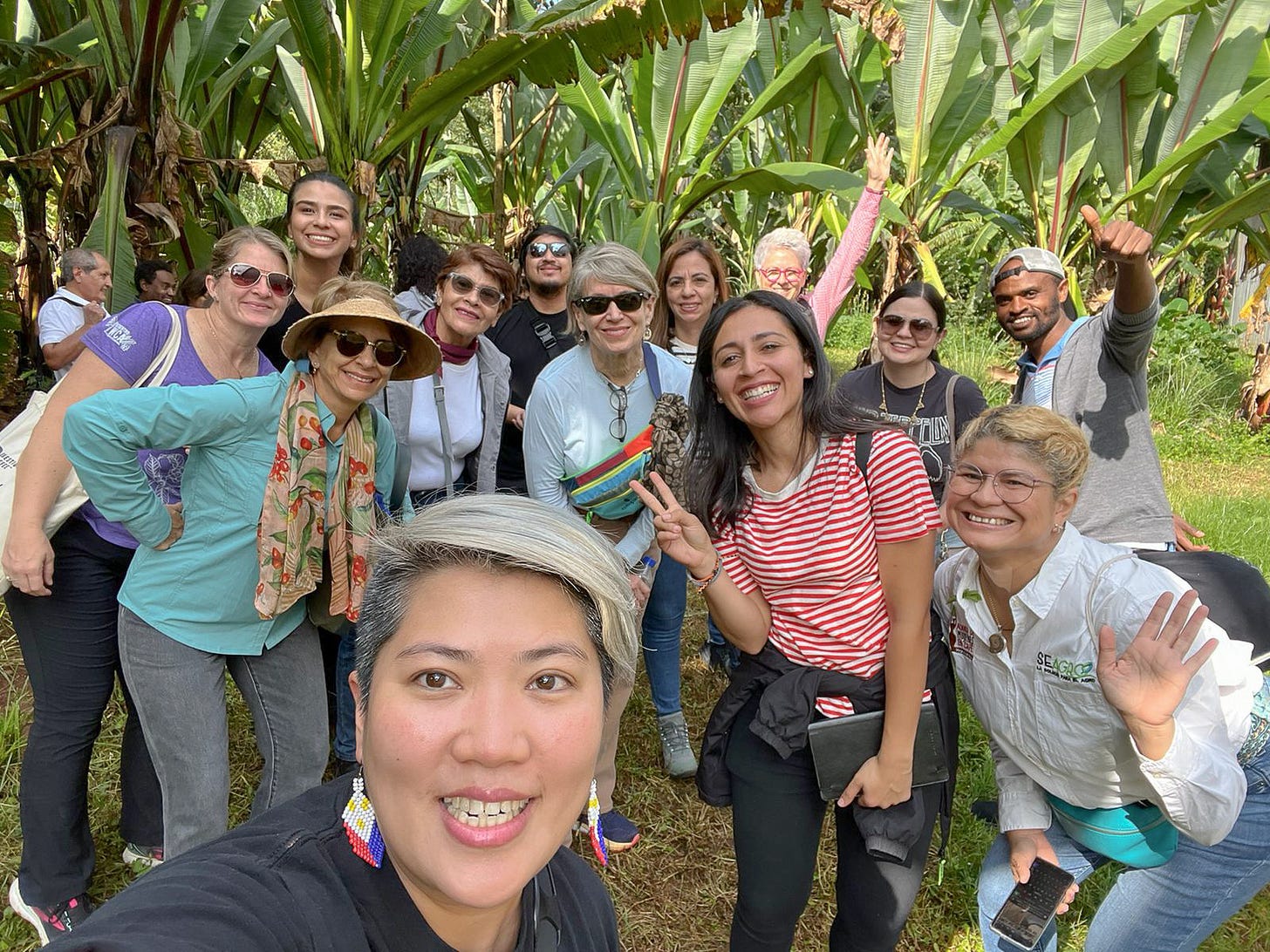




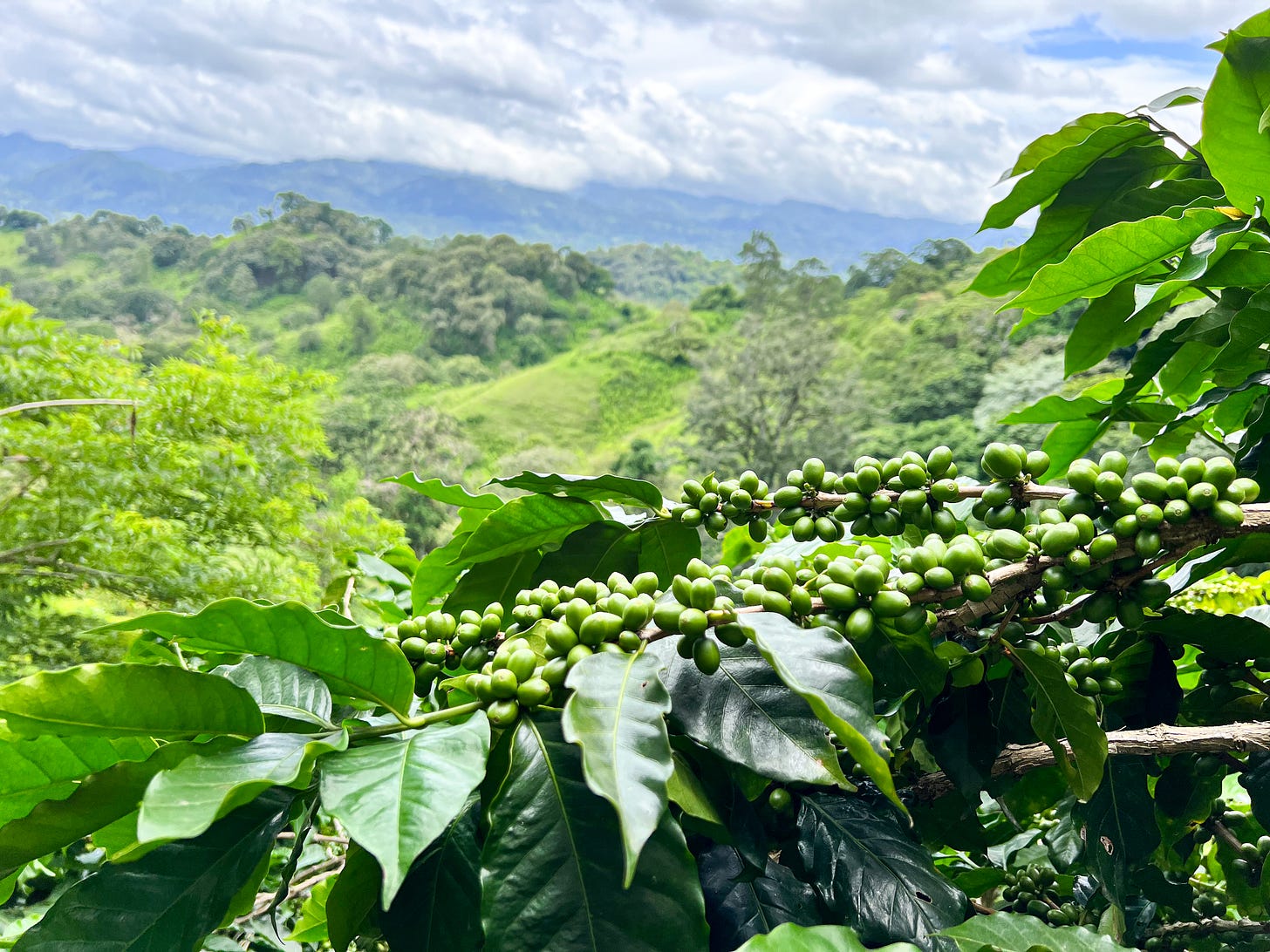

It is not at all surprising that they welcomed you in knowing the kind and passionate person you are. Love your story.
For some reason, I hear Streisand singing "People" as I finish this...lovely, coz.